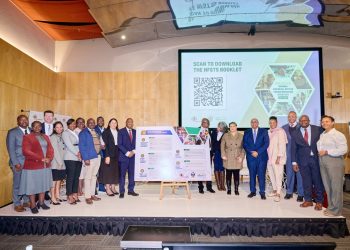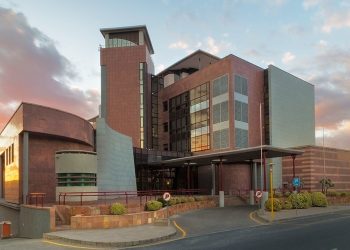
The Southern African Science Service Centre for Climate Change and Adaptive Land Management (SASSCAL) has launched the SASSCAL 2.0 Research Programme, a five-year programme which will implement 13 approved projects in line with SASSCAL’s five thematic areas of agriculture, water, biodiversity, climate and forestry to the tune of N$170 million (€8.6 million).
SASSCAL 2.0 aims to address the imminent challenges posed by climate change, and to improve Southern Africa regional integration in scientific research.
According to SASSCAL, the portfolio was conceptualised to enhance internationally recognised research programmes, intensify continental and global engagement by developing and expanding international research collaboration, building sustainable multinational partnerships, and addressing global challenges through international development projects.Â
The Research Programme will enhance skills, build institutional and human capacity in scientific research and establish long-term collaborations that work towards a scientific understanding of climate change from a mitigation and adaptation perspective. Research Products and services shall be generated in the process.Â
It supports research that advances diversity and inclusivity that leads to an increased understanding of cultures and communities within the region and across Africa making it the kind of research that involves local people and intends to improve the quality of their lives.
Its predecessor–SASSCAL 1.0 Research Programme–was implemented between 2012 and 2018, during which it generated 88 research tasks and 230 peer-reviewed publications. It produced a number of graduates including 227 Bachelors and Master’s degrees, and 33 doctorates during its implementation phase.
Executive Director Jane Olwoch is very optimistic about the relevance and timeliness of the programme and said there is a need to increase research funding in Namibia as any other African country.
“Government is doing well in terms of climate mitigation but however the scientist are few and there is need to increase the capacity of university innovative solutions. SASSCAL 2.0 will implement the following projects: SUSTAIN, FoSRECs, RIBS, ELNAC, TIPPEECC, ANTELOPE, WIRE, FRAME, Climate Smart Crops, Properties Plants, ANGSOILS, VRPE and Beekeeping to the tune of about EUR 8.6 million†she said.Â
These projects consist of academic research partners and government institutions working on climate change and related sectors in the six SASSCAL member states namely Angola, Botswana, Germany, Namibia, South Africa and Zambia.
“In the words of the world renown theoretical Physist, Albert Einstein, We cannot solve our problems with the same thinking we used when creating them “ Olwoch said on Wednesday, adding the organisation aims to seek solutions to effectively respond to the devastating impacts of climate change and called upon collaborative efforts from different stakeholders to jump on board.
“We are gathered here once again in big numbers from different parts of the world, from politicians, Heads of institution, Managers , Professors , scientists and all of you distinguished guest to affirm our collective voice and say that it i through partnerships that we can make strides towards creating knowledge that is basis for effective decision making around climate change and other global change issues towards ensuring sustainability of the planet—its habitats and its people,” she said.
Climate Smart Crops, of projects aims to characterisation and technology transfer of value added products for climate smart emerging crops to improve food security in Botswana and Namibia
Meanwhile, WIRE looks at the Water storage in the Angolan-Namibian Iishana system: resource management and adaptation to climate change.
The Study aims at an improved understanding of the hydrology of the complex Iishana system and its water storage and supply functions under changing climatic conditions.
SASSCAL Council of Ministers, Ambassadors, SASSCAL’s initial and main funder – the German Federal Ministry of Education and Research (BMBF), representatives of SASSCAL Member States, international and regional partners, SASSCAL 2.0 implementing Principal Investigators and researchers, attended the launch, which will draw a roll-out plan and symbolidse commitment by all parties.
SASSCAL is an international organization, a joint initiative of six member states including Angola, Botswana, Namibia, South Africa, Zambia, and Germany, established to address the challenges of global change and promotion of Science based sustainable development in the Southern African Region.











